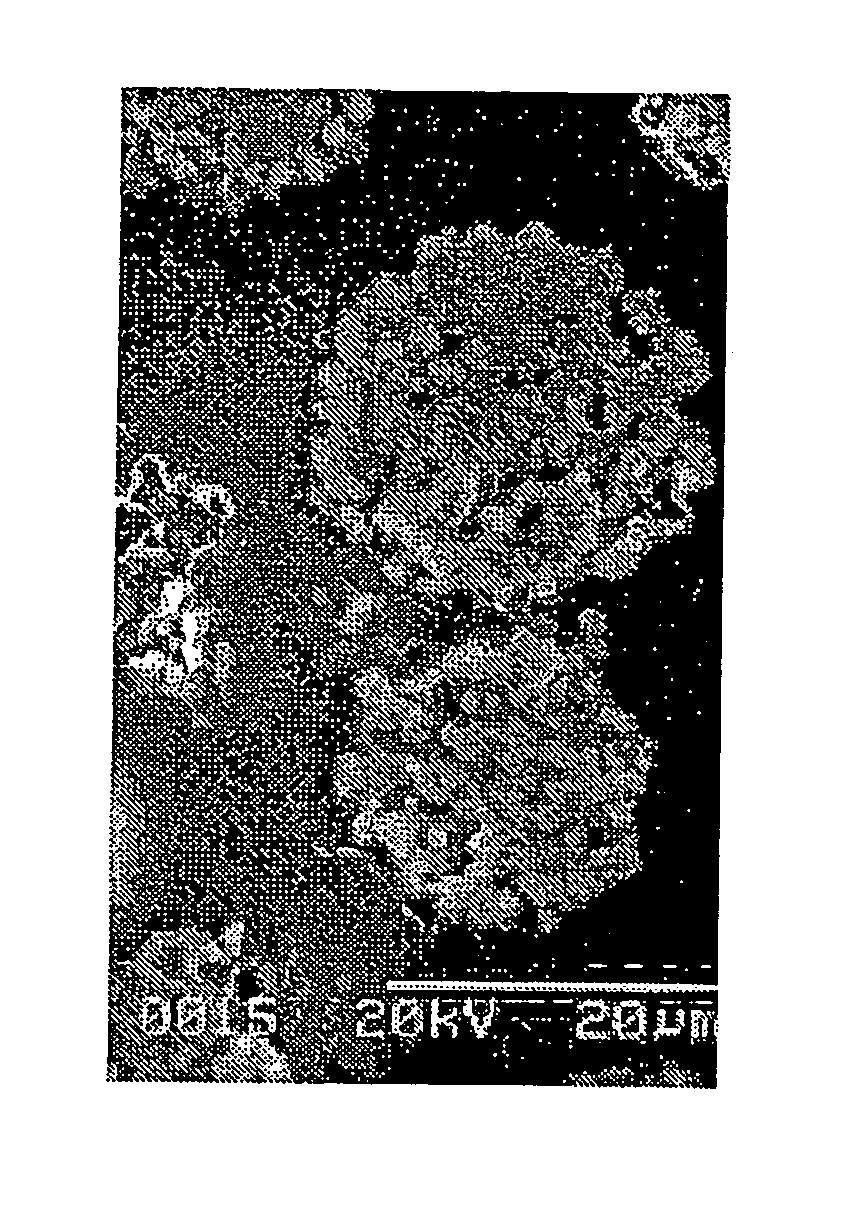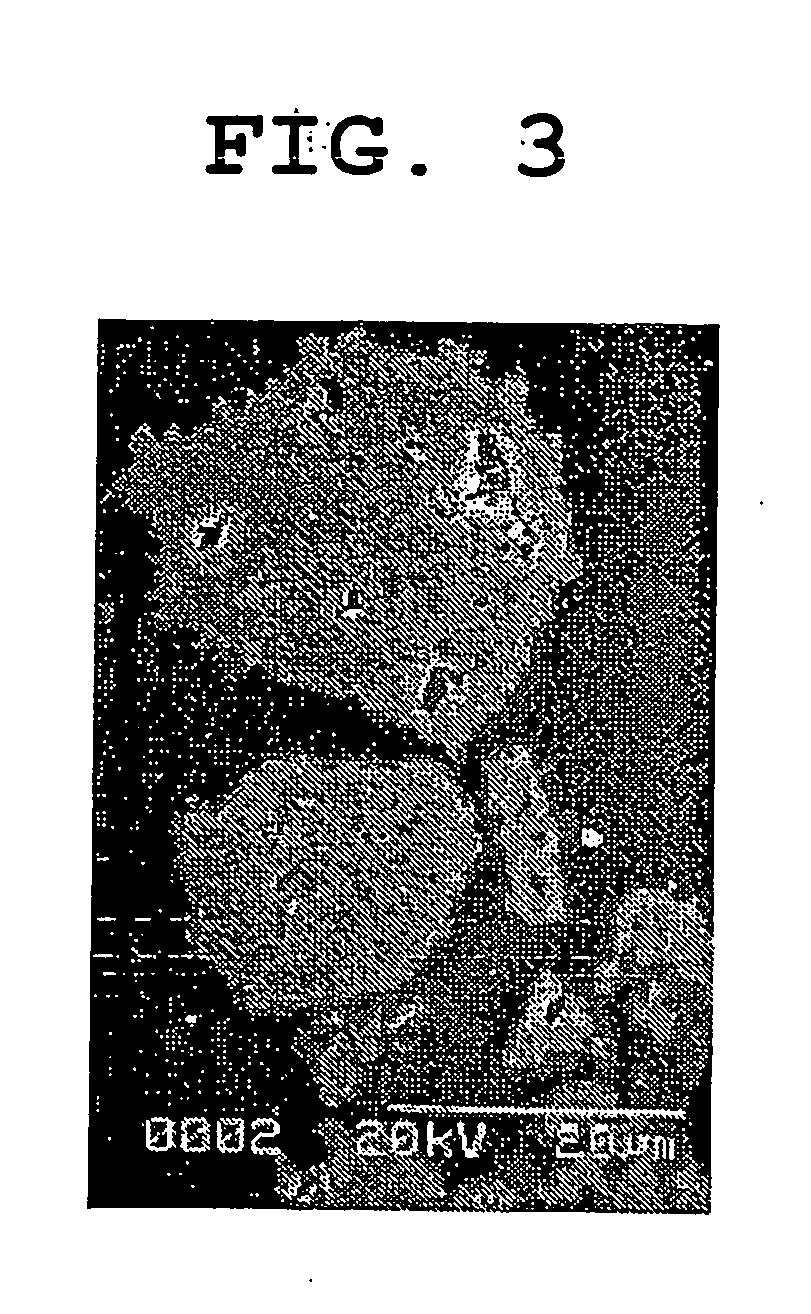Lithium-manganese composite oxide granular secondary particle, method for production thereof and use thereof
a composite oxide and secondary particle technology, applied in the field of lithium manganese composite oxide powder, can solve the problems of limited number of documents, insufficient diffusion of lithium ions into liquid electrolyte, and insufficient improvement of high-rate characteristics and cycle characteristics, and achieve excellent properties and high output characteristics
- Summary
- Abstract
- Description
- Claims
- Application Information
AI Technical Summary
Benefits of technology
Problems solved by technology
Method used
Image
Examples
example 1
[0048] A lithium carbonate powder (average particle diameter, 7 μm), a powder of electrolytic manganese dioxide (average particle diameter, 3 μm), and boric acid were used in such weighed amounts as to result in the composition Li1.1Mn1.9B0.01O4. Water was added thereto in an appropriate amount. Thereafter, the particulate ingredients were pulverized with a mill of the wet medium stirring type for 1 hour. Water was added thereto in such an amount as to give a slurry having a solid concentration of 15 wt %. The water was vaporized with a spray dryer to obtain spherical granular dry particles. The spray drying was conducted at a hot-air inlet temperature of 250° C. This dry powder was calcined at 850° C. for 5 hours to obtain a lithium-manganese composite oxide. Furthermore, this oxide was washed in 95° C. hot water bath for 1 hour, recovered by filtration, and then dried to obtain a sample.
examples 2 to 4
[0049] Samples were obtained in completely the same manner as in Example 1, except that each of aluminum hydroxide, chromium oxide, and nickel hydroxide powders was used as an additive (M) besides the lithium carbonate, electrolytic manganese dioxide, and boric acid powders in Example 1 and these ingredients were mixed in such weighed amounts as to result in the composition Li1.1M0.1Mn1.8B0.01O4 (M=Al, Cr, or Ni).
example 5
[0050] A sample was obtained in completely the same manner as in Example 1, except that a lithium fluoride powder and an aluminum hydroxide powder were used as additives besides the lithium carbonate, electrolytic manganese dioxide, and boric acid powders in Example 1 and these ingredients were mixed in such weighed amounts as to result in the composition Li1.03Al0.16Mn1.81B0.005O3.8F0.2.
PUM
| Property | Measurement | Unit |
|---|---|---|
| Temperature | aaaaa | aaaaa |
| Diameter | aaaaa | aaaaa |
| Length | aaaaa | aaaaa |
Abstract
Description
Claims
Application Information
 Login to View More
Login to View More - R&D
- Intellectual Property
- Life Sciences
- Materials
- Tech Scout
- Unparalleled Data Quality
- Higher Quality Content
- 60% Fewer Hallucinations
Browse by: Latest US Patents, China's latest patents, Technical Efficacy Thesaurus, Application Domain, Technology Topic, Popular Technical Reports.
© 2025 PatSnap. All rights reserved.Legal|Privacy policy|Modern Slavery Act Transparency Statement|Sitemap|About US| Contact US: help@patsnap.com



